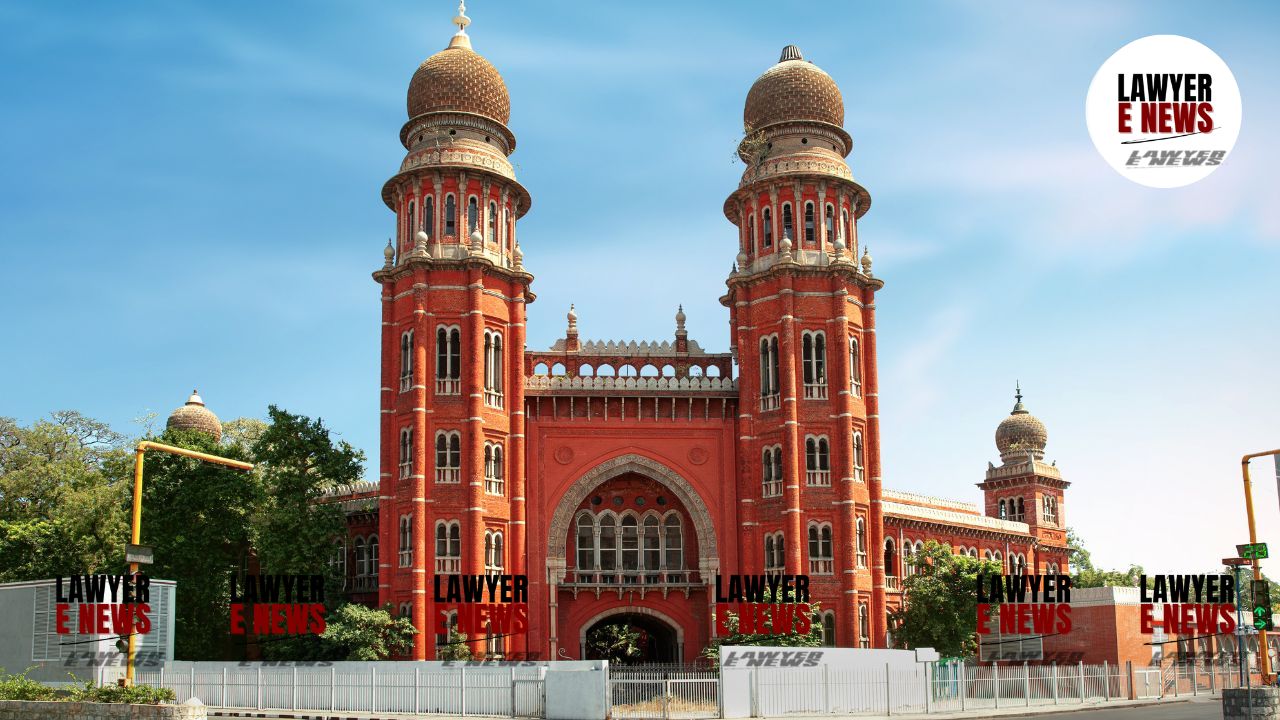-
by sayum
20 February 2026 7:06 AM



“Mere Failure To Take Permission Is Not A Crime – It May Be Misconduct, Not An Offence Under IPC” – In a significant judgment Madras High Court quashed the criminal proceedings initiated against S. Balasundram, a public servant employed in Andrew Yule & Company Ltd., a Government of India undertaking, who was charged under Section 168 of the Indian Penal Code for allegedly engaging in private consultancy work without prior permission.
Justice D. Bharatha Chakravarthy held that the essential legal ingredients to attract Section 168 IPC were not satisfied, observing:
“The mere act of providing professional consultancy for PF and ESI compliance does not amount to ‘trade’ under Section 168 IPC. Further, since the applicable Standing Orders do not impose an absolute prohibition but only require prior permission, the petitioner cannot be said to be ‘legally bound’ not to engage in such work in the criminal sense.”
“Trade Does Not Mean Sporadic Professional Work” – Court Limits Scope Of Section 168 IPC
The case arose from a complaint lodged by the CBI: ACB, Chennai (Crime No. RC MA1 2016 A 0038) where the initial allegation involved a bribery transaction between an Enforcement Officer of the EPFO and Adyar Ananda Bhavan, a restaurant chain. The CBI, after investigation, found no evidence of bribery. However, during the course of investigation, it was discovered that the petitioner, S. Balasundram, was working as a Provident Fund and ESI consultant for Adyar Ananda Bhavan and several other firms while employed in a public sector undertaking.
Relying on this, the CBI filed a final report charging the petitioner under Section 168 IPC (Public servant unlawfully engaging in trade).
The Court, however, meticulously examined whether the consultancy work falls within the meaning of “trade” under Section 168 IPC. It referred to the Supreme Court judgment in State of Gujarat v. Maheshkumar Dhirajlal Thakkar, AIR 1980 SC 1105, where the Apex Court held:
“In its narrow sense, ‘trade’ means exchange of goods for money with the object of making profits. In its broadest sense, it includes any business carried on with a view to earn profit. However, the term derives its meaning from the context.”
Applying this principle, the Court noted:
“Sporadic consultancy services such as filing PF and ESI returns cannot be construed as ‘trade’. Section 168 IPC does not criminalize mere undertaking of professional services.”
“Certified Standing Orders Override Conduct Rules” – No Absolute Legal Prohibition Found
Addressing the second legal limb—whether the petitioner was “legally bound not to engage in trade”, the Court observed that the petitioner was governed by the Certified Standing Orders applicable to the Electrical Division of Andrew Yule & Company Ltd., and not by the general Conduct, Discipline, and Appeal Rules.
The Standing Orders merely require prior written permission for engaging in any other employment, and such permission “shall not be refused if the other employment does not affect the performance of duties or the interests of the company”.
Quoting Section 43 IPC, the Court emphasized:
“A person is said to be legally bound to do whatever it is illegal in him to omit. Where there is no express prohibition by law, failure to seek prior permission may amount to misconduct but not to an offence under the IPC.”
Conduct Rules Vs Standing Orders – Court Resolves The Conflict
Rejecting the prosecution’s argument based on the Conduct, Discipline and Appeal Rules of 2016, the Court held:
“It is a settled principle that where Certified Standing Orders exist, they prevail over general Conduct Rules. The Standing Orders in this case do not contain an absolute bar on other employment but only require permission.”
“Mens Rea Absent – Failure To Seek Permission Is Not A Crime” – Court Clarifies
The Court further noted that the activity of consultancy was openly declared in the petitioner’s income tax returns and reflected in his bank account, indicating the absence of any mens rea (criminal intent). The CBI itself, in its investigation, had dropped the main allegations of bribery and false PF statements against the other accused.
Final Judgment – Prosecution Quashed, Criminal Proceedings Terminated
In categorical terms, the Court declared:
“The essential elements of Section 168 IPC are not made out. The petitioner’s action, even if true, constitutes at best a violation of service norms requiring departmental action, but not a criminal offence.”
Accordingly, the Final Report in C.C. No.8045 of 2017 pending before the Additional Chief Metropolitan Magistrate, Egmore, Chennai, was quashed. The Court allowed the Criminal Original Petition (Crl.O.P. No. 25819 of 2017) and closed the connected miscellaneous petition.
Date of Decision: 25th June 2025
